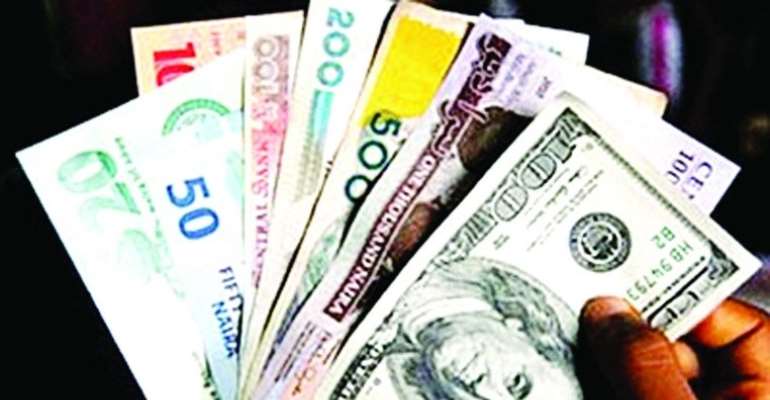Naira surges on parallel market, exchanges N400/$

The Central Bank of Nigeria's (CBN) sustained intervention in the foreign exchange market has continued to boost the naira as the local currency yesterday traded at N400 to a dollar and N415/$ on the parallel market in Abuja and Lagos respectively.
The News Agency of Nigeria (NAN) reports that the naira has also appreciated against the Pound Sterling and Euro rate as it traded at N510 and N415 respectively.
The development has adversely affected forex dealers in the retail market as it has resulted in them losing money. President, Association of Bu-reau De Change Operators (ABCON), Alhaji Aminu Gwadabe, said BDCs were facing increasing resistance from their clients. 'Some of them insist they can only patronise us at N375 to a dollar,'' he said.
He, however, stated : 'The regular intervention by the central bank has increased liquidity in the official market. The new policy has also eliminated spurious demand for the dollar…We see the naira stabilising around 380- 400 to the dollar, but the central bank must review the multiplicity of rates to restore confidence in the market.'
The naira also traded at N307.5/$ at the interbank window. In other segments of the market, Deposit Money Banks (DMBs) and Travelex, an International Money Transfer Services Operator, sold the naira at N381 to a dollar. Governor of CBN, Mr Godwin Emefiele, had last Tuesday, while briefing newsmen on the outcome of the Monetary Policy Committee (MPC) meeting in Abuja, said the apex bank was determined to see the convergence of rates at the foreign exchange market.
Emefiele said that the CBN was optimistic that the rate between the official and parallel market would converge further. He also said that the bank could sustain the policy, adding that those who doubt the ability of the bank to take decisions and implement them were taking a great risk.
He noted that the nations' foreign reserves were rising to $31 billion and warned speculators to desist from stocking dollars at home because, the CBN intervention would crash the price of dollar, which was already happening. The CBN had in the last few weeks injected about $1. 7 billion into the foreign exchange market.
